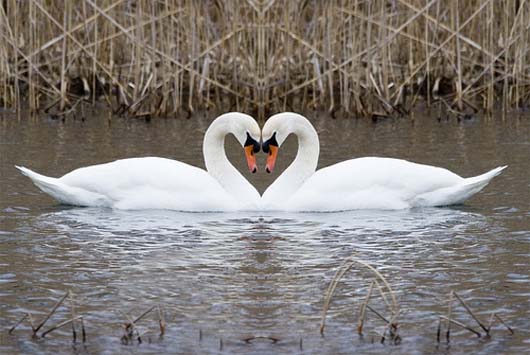How Did Young Africans Express Affection in Pre-colonial Times?
One of my Twirra faves asked this question today:
This is a topic and a question that has interested me for a long time as well, and I swore to Selasie that I had written about it back in 1998. But a quick run through the archives shows this to be false! I was so fascinated with the topic that I would ask Africans on my job, in public establishments and in churches where I might find myself a guest about information on ancient African Romance. It seems my fascination never translated into written words, so at Selasie’s behest, I am here to right that wrong and post the stories I gathered so many years ago.
Of course, “African romance” differs from everybody else’s concept of romance. Africans are magical and superhuman. There are certain activities and behaviors we can’t take part in – as an entire continent – because they are deemed to be “unAfrican”. Homosexuality, obeying the rules of traffic and eating food without hot pepper are chief among these.
The concept of romance is often associated with 17th century western ideals and mores. We think of electrifying kisses, bouquets of red roses, chilled bottles of red wine and candle lit rooms. All of the visual and olfactory delights are generally manufactured by horny men with the singular goal of getting the object of their erection’s desire into bed for the evening (maybe even for a month if things go well that night). In those days, when bees wax was scarce and candlelight was an indicator that one was well-to-do,well having a room lit FULL of candles was extravagant indeed! In modern Africa, a room full of candles merely signals that you are poor, since you don’t have access to a generator.
In asking about how young lovers in the per-colonial era expressed love and/or an interest in one another, I discovered some pretty interesting behaviors that frankly, I wouldn’t mind partaking in myself. All of us come from a village. The average African urban dweller has one generation or less that separates them from their ancestral homeland. And thank God that village people change so little in their ways! They are the keepers of our culture and it will be a sad day when our version of “civilization” overtakes and corrupts the villager. How would we get wind of this gem, for example?:
“When I was very young and I liked a young man, I would bend over discretely to show him my waist beads. (Waist beads are considered intimate apparel in Ghana and Nigeria.) We would arrange to meet each other in the evening by signaling each other with a whistle. I would tell my parents I had to go and ease myself in the bush and I would be back shortly. I would then eat roasted corn to make sure I had fresh breath before meeting my young man.” – my great aunt, aged 87.
“We lived in a village before we lived in Monrovia. I used to go with my wife (before she was my wife) to a small lake near our village with some big rocks on the shore. I would take some ripe fruits and put them in a basket for us to nibble on. Then I would sit close to her with our feet dipped in the water and cut the fruit and watch her eat it.” – Joseph, security desk manager from Liberia
“I remember my parents had nicknames for each other – which they used less and less as their children grew up! My maternal grandparents were perhaps more demonstrative in their love for each other. I remember them going to sit on the patio as soon as my grandfather came home! (I used to spend my long vacations with them till I was 9). Their house was the former District Commissioner’s house in Sekondi. It was high on a hill, and there were spectacular views from the patio to the ocean, where you could also see the yachts of the European expatriates moored in the bay. No one was allowed there when the two of them got on that patio, no babies, grandchildren, children, servants, even the President! My grandmother even took the drinks in herself! I don’t know what my grandfather did for her that was romantic, but the fact that they stuck to this arrangement religiously, obviously showed their devotion to each other. They had 9 children and were married for 65 years!” – A memory shared by Nana
Here is a slightly more modern story of the conquests of the romantic African male
“Well, as a veteran of 42 years of married life I think I can offer a comment! My husband used to be VERY romantic but the weird thing is that he does not want to be reminded of it, almost as if he’s ashamed of it—perhaps African men don’t think romance is “manly” or something.. Of course my definition of romantic may not be every ones but here are some examples–he bought me my very first car, a tiny Fiat 600 and tied a giant bow around it for my Christmas present; he took me on a month long honeymoon cruising in a French boat along the coast to Dakar, Abidjan etc; he polished the floors for me when we were in the States because it was “too hard”: for me; he never bought me flowers or candy but is quite comfortable holding my hand in public, even now; he takes me out to dinner even though he’d prefer to be at home; he cooks when I’m tired; he always notices what I’m wearing , and in any gathering, however large, he’s always aware of where I am and what I’m doing.” -Anonymous
And the piece de resistance!
“A friend of mine had a Tanzanian boyfriend who was lucky enough to have undergone one of the ‘initiation ceremonies’ that his ethnic group had for boys. Apparently, they were taught foreplay with a real ‘learn by doing’ assignment – they had to make love to a vegetable which had the consistency of a soft-boiled egg, without puncturing it! You failed when it got punctured! You apparently had to have several ‘revisions’ till you got it right – ie. ejaculating without puncturing the vegetable. My friend claims she has never had a man like him ever since. He was courteous, self-confident and the best lover she ever had. Unfortunately, he returned to his country after they finished college and the relationship did not survive the many miles between them.” – A Nigerian woman
Have you heard any stories about the amorous adventures of your people prior to colonization? Drop a note in the comments section! Sharing is caring oooo. Sharing is caring.







